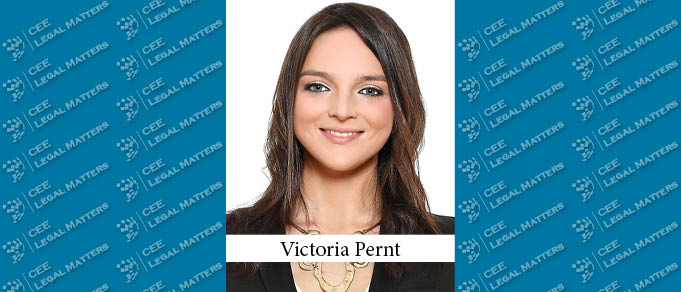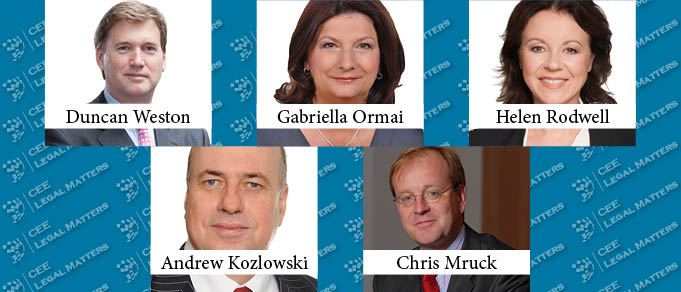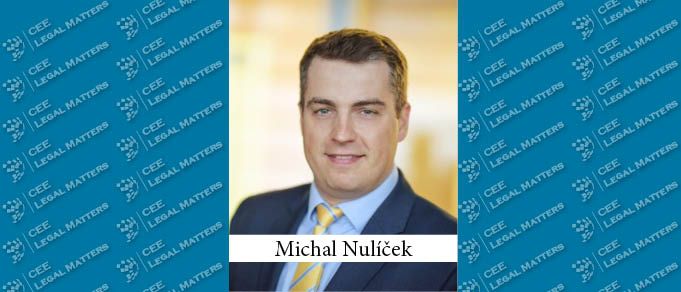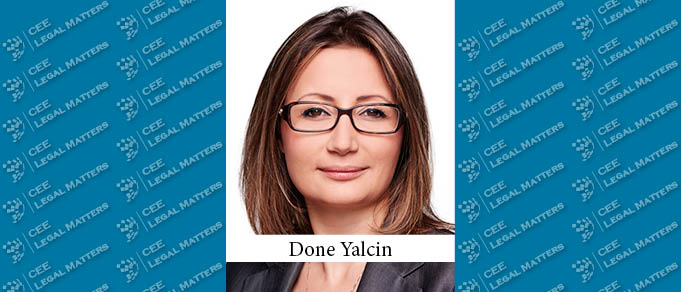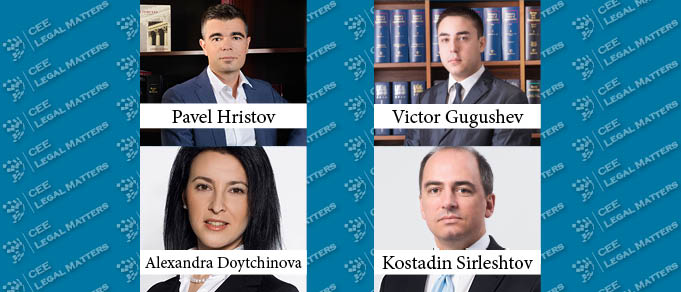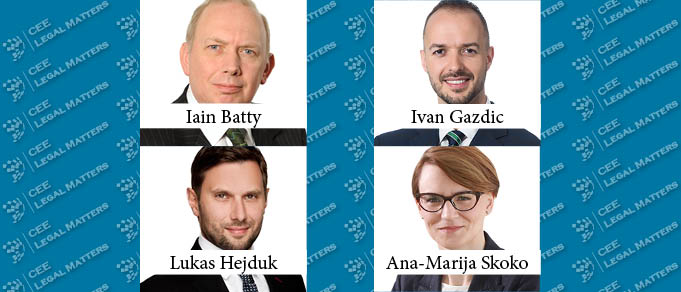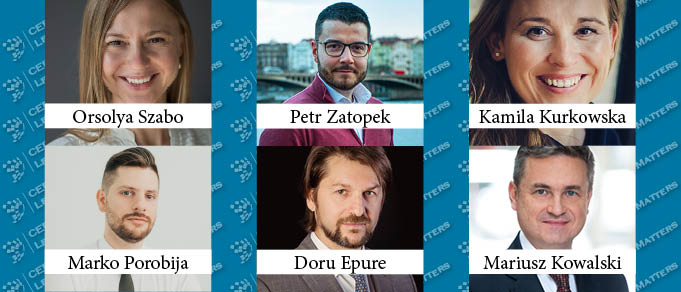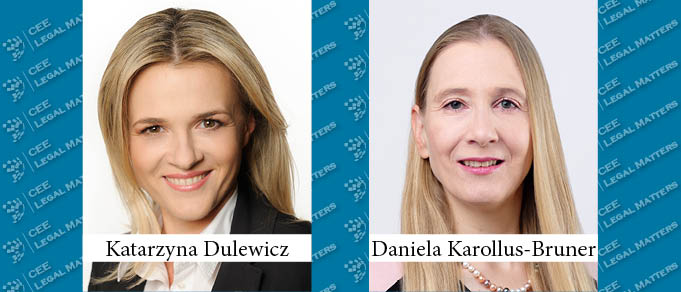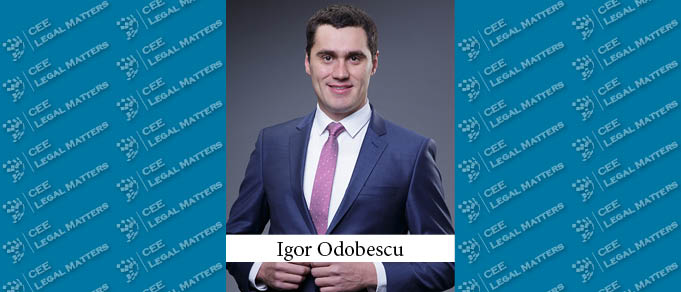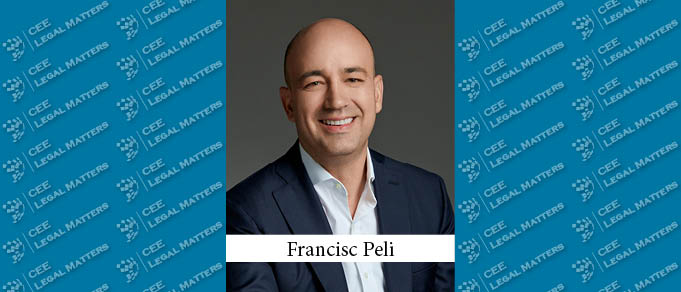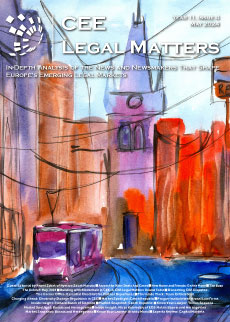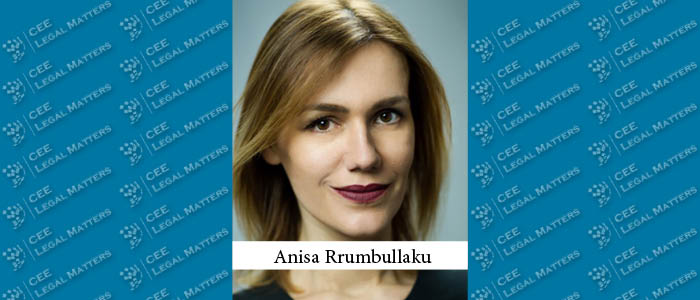New Counsel Victoria Pernt on Schoenherr’s impressive Arbitration practice.
Building Blocks of CEE: Duncan Weston Brings CEE to CMS
Rare is the opportunity to participate in a wave of enthusiastic transformation – a breaking-away from old ways and a journey to uncharted regions. Duncan Weston, Executive Partner at CMS, has played a fundamental role in several different law firm and legal industry transformations. And he’s not done yet.
Guest Editorial: Marketing in a CEE Law Firm
I have always been a fan of marketing and felt that there was something special about it, even back before I had any real practical experience with it. My career started at an international law firm – Hogan Lovells – where marketing was handled both centrally and locally. I became a fan of the field and learned to consider the brand as something potentially very valuable and helpful both in attracting new clients and employees and in retaining existing ones. It also showed me that marketing activities must be conducted systematically.
Tiptoing in Turkey
A CEE Legal Matters special report on how international firms operate in Turkey – and the echoing silence that greets attempts to investigate.
Guest Editorial: Turkey’s New Normal
Are you still reading? Despite the title this is not a COVID-19 piece. Quite frankly we have had enough of that. We want life to go back to how it was – but it won’t. Something new is happening. People have been humbled by the effects of the C-word on their very existence. Everyone is suddenly more aware of the need to change – in Turkey, for example, we always kiss and hug upon meeting, and we are not used to the concept of social distancing at all. Now we stand a meter apart and elbow or fist bump – which still feels odd to me. We are aware and we are asking ourselves – “what needs to change? Was this our fault? What is biodiversity? What can we do?”
Bulgaria at the Boil: Frustration with the Status Quo Pulls People to the Streets
Already struggling with the international coronavirus pandemic, Bulgaria has recently found itself dealing with a major internal political crisis as well – one which, ironically, despite the general incentive towards social distancing, has brought people outside of their homes and onto the streets of the nation’s major cities.
The Corner Office: Your Favorite Client Matter
In The Corner Office we ask Managing Partners across Central and Eastern Europe about their unique roles and responsibilities. The question this time around: ”What is your single most favorite client matter in your career?”
Guest Editorial: The Development of the Bulgarian Legal Market
I began practicing law more than 30 years ago. It runs in my family and I guess this is how I acquired my affinity towards it. Even during the communist period in Bulgaria, being a lawyer was among the few relatively independent professions – unconstrained by political, financial, and other pressures. This is another major reason I became a lawyer. The rule of law is something I was born and raised with.
Logistics and Manufacturing in CEE: Today’s Trends and Opportunities
While the COVID-19 pandemic has caused disruption to nearly all businesses in the logistics and manufacturing sectors in Central and Eastern Europe, enough time has now lapsed that identifiable trends and opportunities are beginning to emerge. CMS Partners Ana-Marija Skoko, Ivan Gazdic, Iain Batty, and Lukas Hejduk agreed to share their thoughts about the effect of the COVID-19 crisis on logistics and manufacturing developments in their local markets and across CEE.
Guest Editorial: Lessons Learned in the Law – From Ljubljana
It was nineteen years ago, but I remember it vividly as if it were yesterday: fresh out of law faculty and green with excitement, I was sitting in my very first job interview when the question fell: “Do you know anything about mortgages?” I started reciting: “A mortgage is a real right of a third person …,” when my future mentor smiled and exclaimed: “Ah, never mind, you will learn!”
Blazing a Trail for LegalTech in CEE
According to its website, Budapest-based InvestCEE aims to “humanize technology” for lawyers and provides services to law firms and in-house counsel in Hungary, Romania, Croatia, Poland, and the Czech Republic.
Rebuilding and Reshaping in the Aftermath of COVID-19
As Europe begins a tentative re-opening following several difficult months of quarantining, social distancing, and working-from-home, we spoke to CMS’s Warsaw-based Employment Partner Katarzyna Dulewicz and Vienna-based Dispute Resolution Partner Daniela Karollus-Bruner for their perspective on the process.
Clear for Take-Off: (No) Sexism in Romanian Law Firms
According to the 2019 CEE By the Numbers issue of the CEE Legal Matters magazine, almost two third of all lawyers and almost half of all partners at ranked Romanian law firms are women. As Romania’s population, economy, and (therefore) legal market are much larger than its chief competitors in both categories, its achievements in this area are particularly significant. Romania’s most prominent female managing partners insist that, indeed, sexism, in the Romanian legal industry, is essentially a non-factor.
The Funambulists - Moldova Walks a Tightrope Between the EU and Russia
A Fortunate or Unfortunate Positioning
Greece Plays the Long Game
The novel coronavirus has sent markets into a tailspin and forced the scrapping of many plans for this business year. Commercial law firms, their businesses closely tied to the way economies ebb and flow, have been forced to adapt. This global phenomenon is in some ways particularly poignant in Greece, which was finally, after a decade of darkness, showing signs of returning to the light. Commercial Greek law firms, excited about the prospects of a highly-anticipated economic recovery, have discovered they’ll have to wait just a little bit longer. Still, they insist, good times are just around the corner.
Guest Editorial: A Nostalgic Outline from a Moldovan Lawyer in Moldova
I was born in Moldova and obtained my first degree in law from a Moldovan university 20 years ago. Since its independence in 1991, Moldova – a small landlocked country located between Ukraine in the East and Romania in the West – has struggled to survive, being torn apart by various geopolitical interests, political havoc, corruption, and economic fluidity. The legal industry has struggled as well. Although a lot has changed in my time as a lawyer, I cannot confidently say that the legal industry in Moldova has witnessed tremendous growth.
Guest Editorial: 2020 – The Beginning of a New Cycle
The Romanian legal market got overheated in the past couple of years. The numbers went up and competition increased. The industry got more sophisticated and a variety of success stories unfolded.
Guest Editorial: Legal Business in CEE – How it Was, How it Is, and How it Will Be
When I was asked to write this editorial by CEE Legal Matters I started to wonder how I could describe the current situation in Central and Eastern Europe. The first half of the year will definitely remain marked by the global COVID-19 pandemic. However, this editorial will not be focused on the pandemic, on measures taken (or not taken) by the governments in the region, or on what the consequences will be. Instead, I will try to provide an overview of the market, specifically as it relates to our business in this part of the world – and how I expect it to develop in the years to come.

